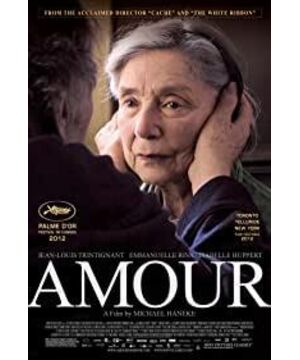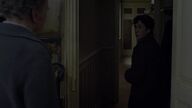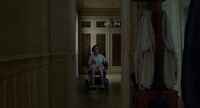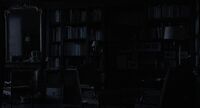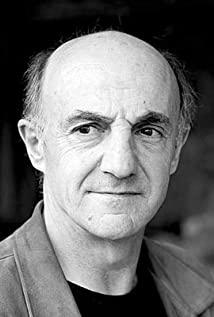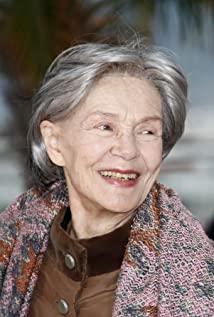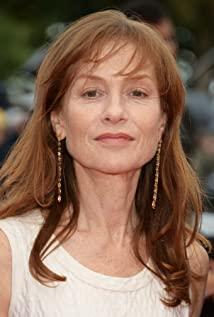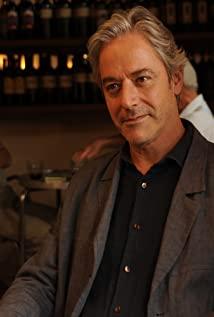The actress Emmanuelle Riva who plays Anne is the heroine of "Hiroshima Love". Do you still remember her beautiful face when she was young?
Jean-Louis Tritingnant, who played Georges, was also a famous actor in art films in the 1960s and 1970s. He played "A Man and a Woman", and later also played the grandfather in "Red", which we are all familiar with. His daughter Marie Tritingnant, also an actress, was beaten to death by her rock star boyfriend at the age of 41. It's abominable that the murderer was only found to have accidentally wounded to death, and was sentenced to eight years. He behaved well in prison and was released after four years! !
======Begin to talk about the dividing line of the film========
Anne and Georges are two common names, which can be seen in many of Mike Haneke's films, and it can even be said that the couple under his lens is almost It's either Anne and Georges or Ana and Georg. Identical names, like face masks, simply blur our understanding of the majority of the middle class, like income, real estate, and age, these large-scale indicators, hastily concealed the individual problems under the characters. In each of Haneke’s films, it’s about the problems of ordinary people—most of the time, the problems of the ordinary middle class. Suppressed emotions ("Piano Teacher"), morality diluted by media violence ("Benny's Video"), daily life trajectory ("The Seventh Continent")... But he also loves to use extremes. The way to tear apart these ordinary people, let the questions that are silent under the skin swarm out. The stereotyped middle-class life in "The Seventh Continent" finally came to an abrupt end in the absurd plot of the family's collective suicide Deeply lost when it comes to sex, the terrifying surveillance in Hidden Camera stems from an indelible childhood sin...
"Love" is also such a story that starts flat and ends abruptly in surprise. The old man Georges and the old lady Anne took the bus to the concert together when they were over old. They lived in a spacious apartment in Paris with elegant oil paintings. Both of them lived a rich material and spiritual life. It wasn't until Anne suffered a sudden stroke that left her hemiparesis and then paralyzed that her abundant spiritual life began to fall apart. Anne, who was originally a skilled and noble piano teacher, gradually had to learn to sing simple nursery rhymes with her husband. Anne's self-esteem decayed to the point where she didn't even have the ability to object. Eating or not eating, looking in the mirror or not, is no longer her power... She is just a body that can only be at the mercy of a nurse.
Perhaps only his wife, Georges, who has been with her for many years, understands her. Instead of living so dignifiedly, incontinently, and with only "mal mal mal mal" in all words, it is better to end this life quickly in a slightly calmer mood.
This is my interpretation after thinking about it for three days, and it is also my intuition when I just read it. Because of his love for her, in the end he only had the option of killing her.
After filming "The Piano Teacher," Haneke spoke about the tragic nature of love in an interview. He believes that the tragedy of love is that the two people in the relationship (each person) always think very differently, but in most cases, one party does not really care about what the other party wants. The abnormal love in "The Teacher of Love" may be the extreme footnote he wrote for this kind of love tragedy. And what "Love" shows may be exactly the harmonious and rational love he can think of, a helpless choice based on rational will (and also reveals the fear of a paralyzed irrational body)...
just finished watching "Love", we first burst into tears, and then we discussed a lot of issues. For example, the story told in this film, from a Chinese perspective that prioritizes "filial piety", is indifferent, bizarre, and even impossible. How can her daughter still work abroad with peace of mind when her mother is so ill? If she could intervene more frequently and deeply, Georges might be able to escape somewhat temporarily from the closed space of isolated, solitary care for stroke patients. Go to the park, go to the crowd. Come back and continue to be full of positive energy to help Anne through the last part of her life. For example, what kind of management does the nursing care need, and whether he is tired or loves her...
In the end I decided that he made that decision because he loved her. Because of love, she understands that the life she wants is by no means lingering, not being manipulated or causing trouble. Of course, the movie doesn't give us a clear explanation as to why he did it. Maybe it's just impulsive, maybe it's depression in long-term care of a patient (we also see Georges' life getting more and more closed)...Mike Haneke never wanted to give us answers.
Haneke, who grew up in the 1960s and 1970s and majored in philosophy, psychology and drama at university, was deeply influenced by the popular Frankfurt School, which believed that Hollywood genre films instilled false reality in audiences in an assembly-line fashion. Therefore, a good film can only ask questions, but cannot present the whole of reality, but can only flash the fragments of reality, so as to stimulate the audience's attention to the problem. But any attempt to provide a solution is false.
So in his films, there are always some elements that are loose outside the plot of the film, as if to remind the audience that the reality is that there is not much coherence. "Love" also has some such scenes. Terrifying Georges dream. Is it foreshadowing? Is it psychological pressure? What does that hand represent? What does the water on the ground represent? If you take a closer look, they may not represent anything. Maybe it's just emotional feedback. What about the pigeons that flew into the house twice later? In Haneke's own words, movies that have to answer everything right away are extremely boring. Pigeons may fly in occasionally, and there are such inexplicable events in life that have no symbolic meaning. In fact, Haneke could easily use the element of the pigeon to scribble annotate Georges' behavior. If he continues to smother the pigeons, it is because he has a split personality and a tendency to violence due to his long closed life and arduous caregiving tasks. But he didn't, and Georges referred to letting the pigeons go in a later letter. Whether it was released or not, in fact, we are not sure, the camera did not take a picture of the release. So he may still be schizophrenic, or he may just be a person who defends the power of his lover in a special way.
Regarding Anne's death, we actually discussed the feasibility of euthanasia. One is fiercely opposed, and the other is somewhat agreeable. In the face of the inevitable birth, old age, sickness and death, what should we do? Haneke used the common names of Anne and Georges to create two characters as simple as occupation, gender, class and age, and threw us many people with a strong sense of immersion, but he never dared to go. question of thinking. In short, the film can also be just one question:
what would you do if you were Georges?
View more about Amour reviews


